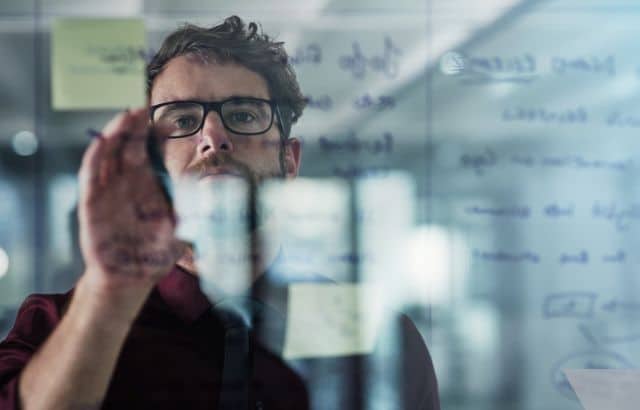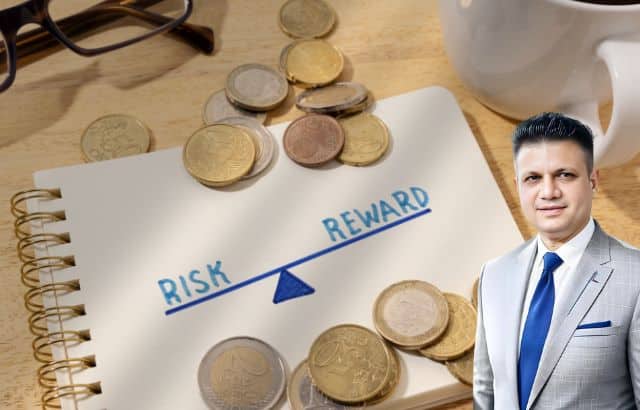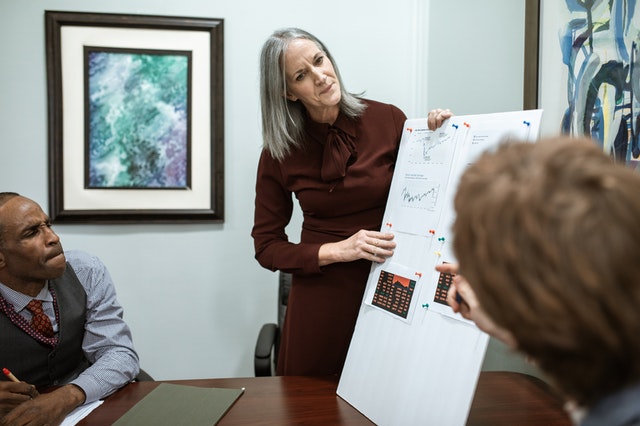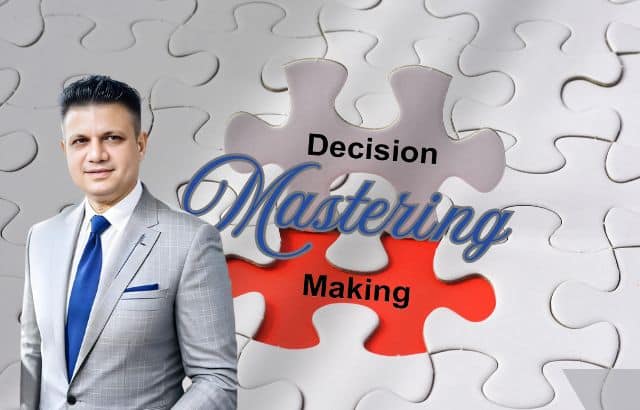Table of Contents
The Cost of a Single Bad Decision:

In 2006, Netflix approached Blockbuster with an offer to sell for just $50 million. Blockbuster’s executives laughed at the idea, dismissing Netflix as a niche DVD rental service that would never compete with their 9,000+ physical stores.
Fast forward to today: Netflix is worth over $200 billion, while Blockbuster has been reduced to a single store in Oregon.
This wasn’t just a business failure—it was a decision-making failure.
📊 According to McKinsey, companies that use data-driven decision making are 23 times more likely to acquire customers and 19 times more profitable than their competitors. Additionally, a Harvard Business Review study found that 72% of executives believe decision making is more complex today than five years ago.
Every entrepreneur, CEO, and business leader faces defining moments where a single decision can mean the difference between massive success and catastrophic failure. But how do you ensure you’re making the right call?
The world’s best decision-makers—from Jeff Bezos to Warren Buffett—follow a structured approach to decision making. Let’s break it down into a 6-step framework that ensures you always make the best possible choice.
Step 1: Define the Problem Clearly

🔹 In 2013, BlackBerry was still a household name in mobile technology. Their executives believed that businesses would always prioritize keyboards over touchscreens. The problem? They didn’t see that consumer preference was shifting—and neither did their competitors at the time.
✅ The Lesson: Poorly defined problems lead to wrong decisions. Before acting, ask yourself:
- What is the real problem I’m solving?
- Am I addressing a symptom or the root cause?
- If I do nothing, how will this problem evolve in 6 months? A year?
📌 Hirav Shah Says: “A poorly defined problem leads to a poorly executed solution. Decision making starts with clarity.”
Step 2: Gather Data & Insights

🔹 Ever heard of New Coke? In 1985, Coca-Cola changed its formula in response to blind taste tests suggesting consumers preferred sweeter flavors. But they didn’t analyze consumer emotional attachment to the original Coke. The backlash was immediate. Within 79 days, Coca-Cola was forced to bring back the original formula.
✅ The Lesson: Data is powerful—but only if interpreted correctly.
- What quantitative (numbers) and qualitative (customer feedback) data do I have?
- Have I considered all external factors (trends, competitors, technology shifts)?
- Am I making a reactionary decision, or a strategic one?
📌 Hirav Shah Says: “Data-driven decision making removes uncertainty. The more insights you gather, the stronger your decision will be.”
📊 Self-Assessment Quiz: How Good Are Your Decision-Making Skills? ✅ Answer Yes or No:
- Do you validate big business decisions with data?
- Do you consult experts or mentors before making major moves?
- Have you ever tested a decision on a small scale before full execution?
- Do you analyze both risks and rewards before acting?
- Do you commit fully once a decision is made?
Results:
- 5 Yes: You are a highly strategic decision-maker.
- 3-4 Yes: You are good but need better risk assessment.
- 0-2 Yes: You should consider using a structured framework for decision making.
Step 3: Assess Risks & Rewards

🔹 In 2011, Netflix CEO Reed Hastings made the bold decision to separate DVD rentals and streaming into two companies (Netflix & Qwikster). The backlash was brutal—Netflix stock dropped 77% in four months. Why? Because they didn’t properly assess how customers would react to the change.
✅ The Lesson: Before making a big decision, list all possible risks and outcomes.
- What’s the worst-case scenario, and how can I prepare for it?
- If this decision fails, what’s my backup plan?
- Am I taking a calculated risk, or just hoping for the best?
📌 Hirav Shah Says: “Great leaders don’t avoid risks; they anticipate and prepare for them. Decision making is about balancing risk and opportunity.”
Step 4: Seek Expert Validation

🔹 In 1997, Apple was on the brink of bankruptcy. When Steve Jobs returned as CEO, he didn’t make big moves alone—he brought in advisors like Bill Gates to validate his decisions. That guidance helped Apple transition from near-collapse to becoming the first $3 trillion company.
✅ The Lesson: Even the most brilliant minds seek external validation before making big decisions.
- Who are 5 people I trust to give me objective advice on this decision?
- Have I consulted experts or mentors with relevant experience?
- Am I open to feedback that challenges my current perspective?
📌 Hirav Shah Says: “Even the smartest CEOs validate decisions with experts before taking action. No great decision is made alone.”
Step 5: Test & Simulate the Outcome

🔹 Amazon never launches new features without extensive testing. Before Prime Video expanded globally, they conducted small pilot runs in select markets to analyze engagement. This helped them avoid multi-million-dollar losses in launching untested features worldwide.
✅ The Lesson: Test before you invest.
- Can I run a small experiment before committing full resources?
- Have I modeled different scenarios to predict possible outcomes?
- What small adjustments can I make before full execution?
📌 Hirav Shah Says: “A great decision is one that works in reality, not just on paper. Smart decision making requires real-world testing before full execution.”
Step 6: Commit & Execute with Confidence

🔹 In 1996, Google co-founders Larry Page and Sergey Brin offered to sell their search engine for $1 million. The buyer (Excite) declined. Instead of giving up, they doubled down on their vision—and today, Google is worth over $1.8 trillion.
✅ The Lesson: Once you’ve made an informed decision, commit to execution.
- Do I have clear KPIs (Key Performance Indicators) to measure success?
- Is my team aligned with the decision and ready to act?
- Am I mentally prepared to adjust and iterate if needed?
📌 Hirav Shah Says: “The best decision-makers don’t just decide—they execute with confidence and course-correct along the way. Decision making is nothing without action.”
FAQs on Decision Making

❓ Why is decision making important in business?
Decision making impacts growth, profitability, and long-term success. A single wrong decision can cost millions, while a smart choice can lead to massive gains.
❓ How can I improve my decision-making skills?
Follow a structured process: define the problem, gather data, assess risks, seek expert validation, test options, and execute with confidence.
❓ What is the biggest mistake people make in decision making?
Making impulsive decisions without proper research or validation. Relying solely on intuition instead of data can lead to costly failures.
❓ How do CEOs make decisions under pressure?
They use frameworks, consult advisors, analyze risks, and trust experience. Good decision making is about strategy, not just speed.
❓ Can bad decisions be fixed?
Yes. The key is to identify mistakes early, pivot quickly, and apply a better strategy next time. Business success is built on learning from decisions.
Final Thoughts: Mastering Decision Making for Business Success

✅ Next Step: Facing a tough business decision? Write down your answers to these six steps. If you’re stuck, consult an expert. The best leaders make decisions with confidence—but never in isolation.
💬 Have you ever made a decision you later regretted?










